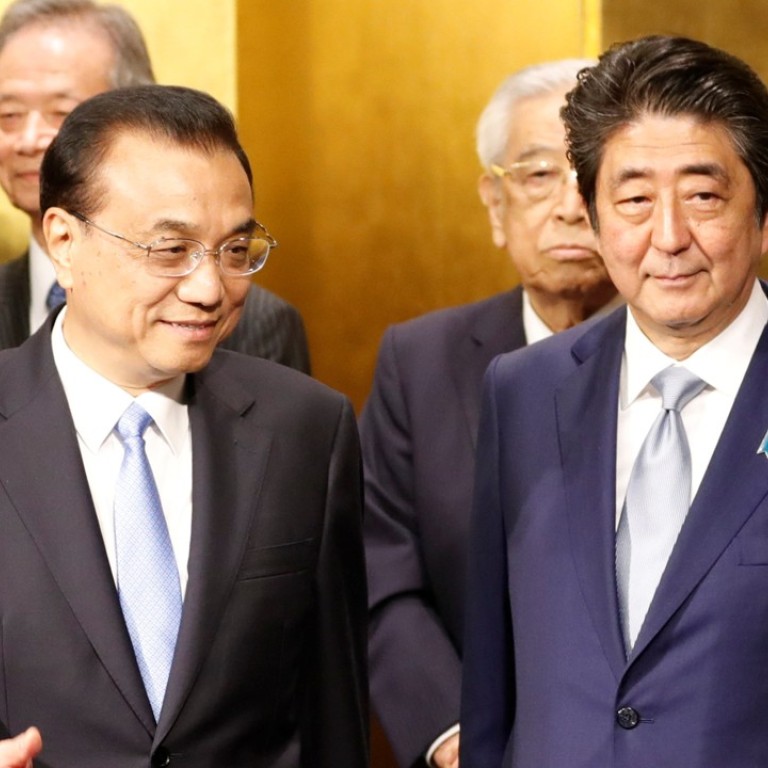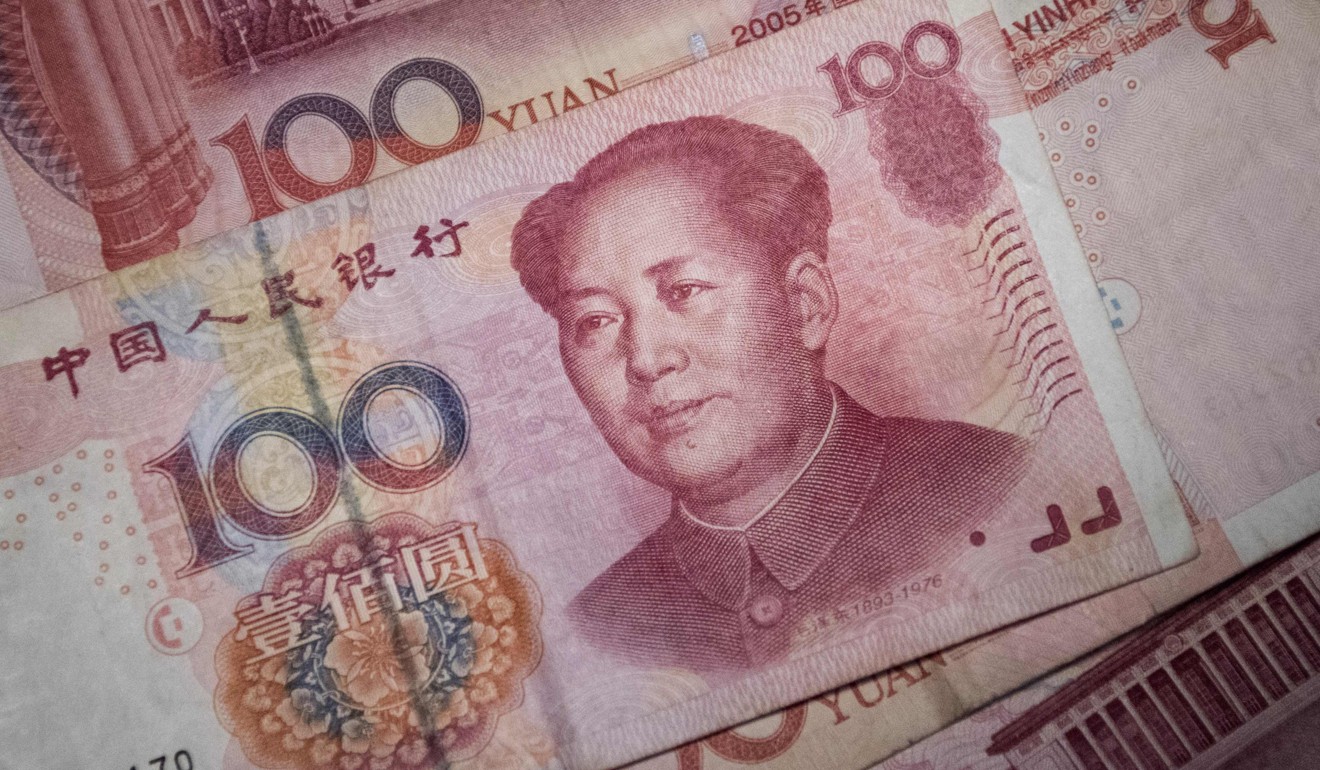
China moves to strengthen financial ties to Japan in face of US trade war threat
East Asian neighbours try to overcome legacy of mistrust by unveiling plans to improve links between their economies
China and Japan have moved to strengthen their financial ties with each other amid the looming threat of a trade war with the United States.
The two countries have been working to improve relations despite their ongoing territorial disputes and historic disagreements.
Chinese Premier Li Keqiang, who is visiting Japan, announced three measures to boost links between the two economies: allowing Japanese investors to buy up to 200 billion yuan (US$31.4 billion) worth of securities in Chinese onshore markets, resuming talks over a halted bilateral currency swap deal and licensing a bank in Tokyo as a yuan clearing bank.
Li told Japanese Prime Minister Shinzo Abe that relations between the two countries are “at a crucial stage”, adding that the two neighbours should be partners rather than foes.
Li also used the meeting to unveil a Renminbi Qualified Foreign Institutional Investor (RQFII) scheme, which allows the use of offshore yuan to buy Chinese stocks, bonds and other assets worth up to 200 billion yuan.
The two Asian giants have also agreed to speed up negotiations on the resumption of a currency swap arrangement, after the deal was halted for about five years.
A bilateral currency swap deal allows China to use its own currency to buy Japanese yen in time of need, and vice versa.
Analysts described the measure as a sign of trust, but said it also offered a hint that there was a plan to sideline the US dollar in the region.
“The swap line has been talked about for years,” said Chen Zilei, a professor at Shanghai University of International Business and Economics.
“It is a breakthrough on the basis of political mutual trust, and can help to avoid exchange rates risks.”

The two countries launched their first swap scheme worth US$3 billion in 2002 but the deal was not renewed after it expired in 2013 due to the ongoing dispute over the Diaoyu Islands, known as Senkaku Islands in Japan, in the East China Sea.
The Japanese yen is a convertible currency, and the Chinese government is trying to boost the global clout of its own currency.
The Japanese government may also start to consider including Chinese yuan in its foreign exchange reserves, according to Sayuri Shirai, a professor at Keio University, a former member of the policy board of the Bank of Japan.
The open RQFII for Japanese investors “means the demand for yuan will rise in Japan,” Shirai said. She argued that it was an “opportunity for [financial institutions] to diversify their investment portfolios”rather than focusing on US and European markets.
Shirai said Japan, despite its geographical closeness to China was lagging behind other neighbouring countries in forming financial ties with the mainland but could still catch up.
Japanese institutional investors are on the move already.
Nomura Holdings, Japan’s biggest brokerage, has applied for a 51 per cent stake in a joint-venture brokerage on mainland China, the second major international institution to do so after the Swiss banking giant UBS.
The China Securities Regulatory Commission confirmed on Tuesday that it had received the application and would review it.
A spokesman for Nomura said: “We have applied to set up a securities joint venture in China. We are currently discussing the details with the relevant parties and are unable to comment further at this stage.”

